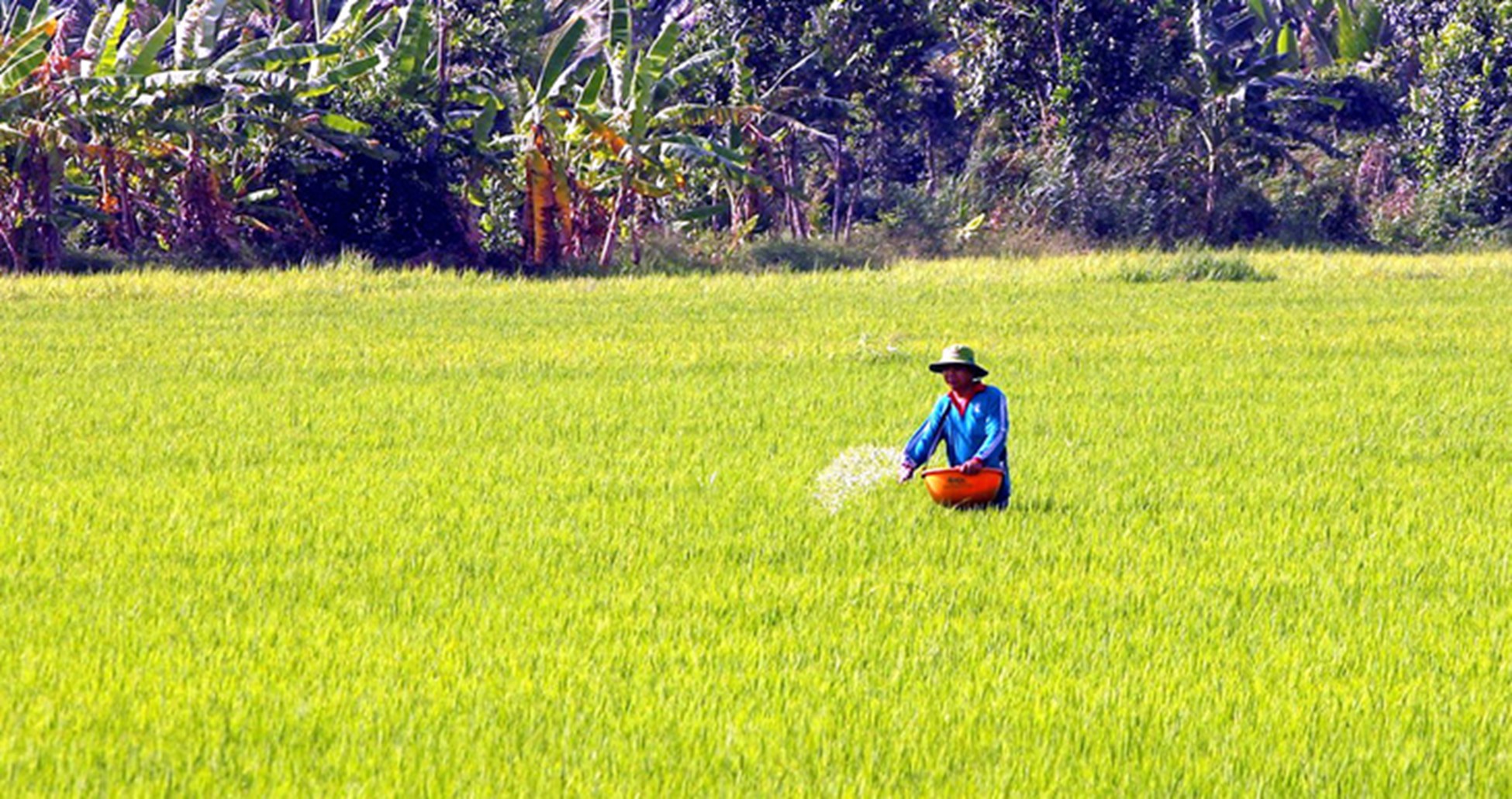A U.S.-financed four-year project that aims to help farmers in six Vietnamese provinces to use fertilizer properly was jointly launched by Vietnam’s Ministry of Agriculture and Rural Development (MARD) and the U.S. Department of Agriculture (USDA) on Tuesday.
With an expected budget of US$4.4 million provided by the Foreign Agricultural Service under the USDA, the Fertilizer Right Project was kick-started at a workshop held in Hanoi on Tuesday morning.
The event was attended by Deputy Minister of MARD Hoang Trung, U.S. Ambassador to Vietnam Marc E. Knapper, and Agricultural Counselor of the U.S. Embassy Ralph Bean.
The MARD’s Plant Protection Department is the project’s owner while the Philippines-based International Rice Research Institute (IRRI) is in charge of implementation, according to the Vietnam News Agency.
The project will be executed over four years starting this year in three provinces in the Hong (Red) River Delta in northern Vietnam, namely Hai Duong, Thai Binh, and Nam Dinh, and three others in the Mekong Delta region, including Can Tho, Dong Thap, and Soc Trang.
According to the USDA, the Fertilizer Right Project will cover activities based on the 4Rs of nutrient management, a concept that entails using fertilizer from the right source and applying it at the right rate, at the right time, and in the right place.
With technical assistance from USDA and IRRI experts as well as from Vietnamese scientists, farmers in the six provinces will have access to advanced techniques, technology applications, and precision agriculture practices to optimally use inputs including fertilizers in rice cultivation for optimizing the farming production outcomes.
This project is not the first for cooperation between Vietnam and the U.S. in agriculture, but it is among those intended for practicing sustainable and environmentally responsible agricultural production, Deputy Minister Trung said.
“This project will help improve the efficiency and effectiveness of fertilizer use, increase income for farmers, and reduce greenhouse gas emissions in rice farming thanks to using fertilizer correctly,” he stressed.
Experience and lessons from the implementation of this project will be applied across the country, the official added.
Through the project, more than 2,600 farmers are expected to benefit from short-term training, and greenhouse gases such as CH4 and N2O may be reduced by an annual amount equivalent to 56,000 tons of CO2.
Addressing the launch ceremony, U.S. Ambassador Knapper said the upgrade of the Vietnam-U.S. relations to a comprehensive strategic partnership last year has opened up new opportunities for agricultural cooperation for sustainable development, according to the Vietnam News Agency.
Knapper expressed his belief that the project will provide technical support and training for Vietnamese rice farmers to enhance their livelihoods, ensure food security, and improve soil health.
Vietnam now holds an important position in global food security, while the U.S. is the second-largest importer of farm produce from the Southeast Asian country, the ambassador commented.
Like us on Facebook or follow us on Twitter to get the latest news about Vietnam!


















































